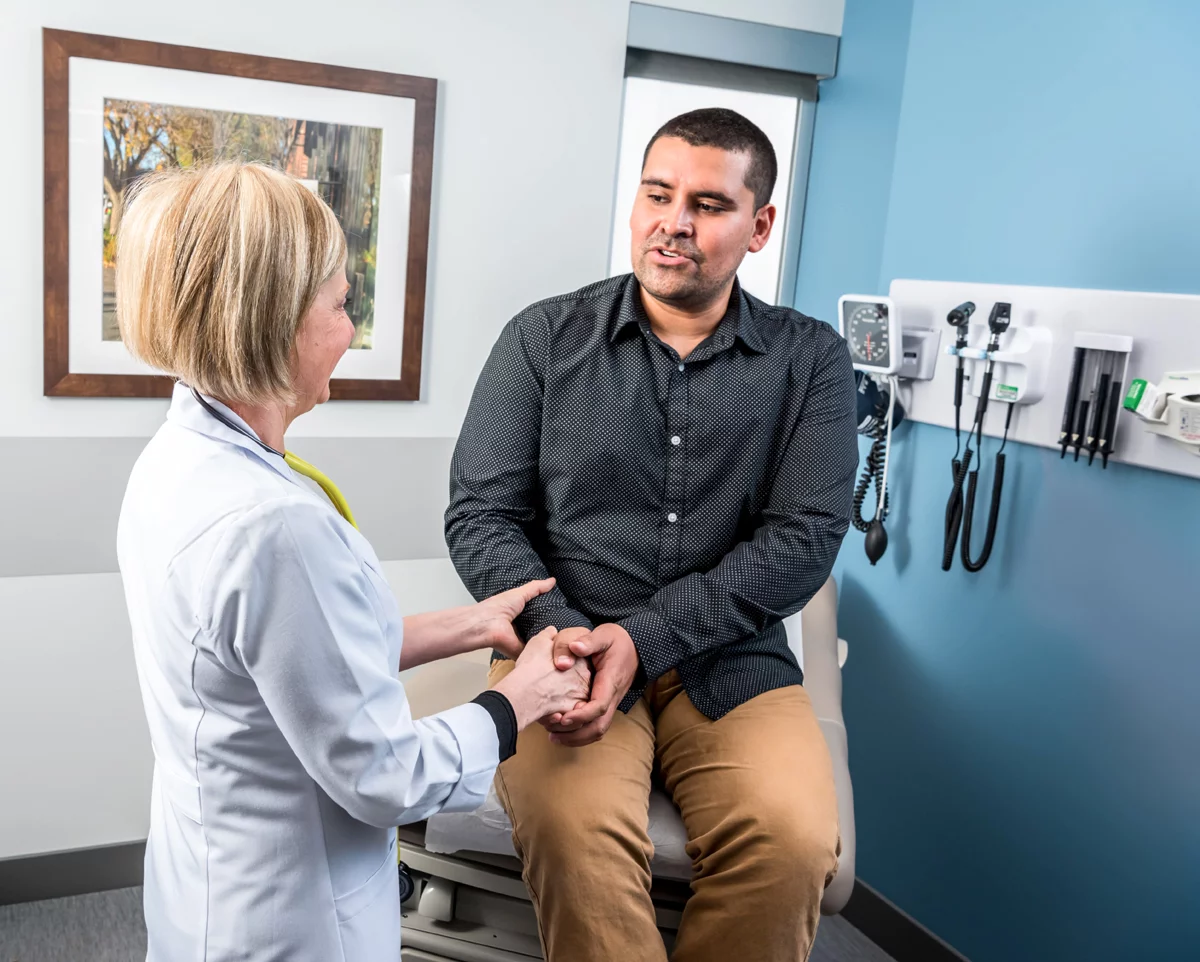
Flu season is right around the corner, and that means it is prime time to get a flu shot.
The Centers for Disease Control says getting a flu shot is the single most important thing a person can do to protect from the flu, which can be quite serious or even deadly.
“The height of the flu season peaks mid-December to mid-March,” says Dr. Katherine Hoekstra, who practices internal medicine at UCHealth Primary Care Clinic – Sterling. “You don’t want to get the shot too early, like early- or mid- September, because the efficacy kind of wears off after about six months. The best time probably is in October. For maximum coverage, that gives you the best protection.”
Because you can only get one flu shot per season, it’s good to plan around your own needs, she says.
“The height of immunity is about three weeks after getting the shot,” Hoekstra says. “That’s when you get full immunity.”
So if you plan to travel around Thanksgiving or Christmas, you may want to plan your shot about three or four weeks prior, she adds. And that’s not just if you’re flying.

“Even if you travel by car, there’s exposure” in stores, restaurants and hotels, not to mention public restrooms.
Last year, a lot of people who got their annual flu shot also got the flu. Predictions about what strain might be prevalent were off.
So, how about this year?
“They’re very hopeful that they have the vaccines better matched this year than last year,” says Dr. Hoekstra.
“On average, their accuracy is about 70 to 80 percent. Last year, it was much lower, about 50 percent. They were off,” she says.
Which age groups are most vulnerable to flu?
Shots are particularly recommended for children and the elderly.
“As we age, our immunity response is not as great, and young children don’t have a fully developed immune system yet,” she explains.
But everyone should get it, Hoekstra said. If nothing else, it will keep adults from spreading it to the vulnerable population.
“Do it for altruistic reasons, to protect others,” she suggests.
Some people claim the shot makes them sick. Is that possible?
“No, because it’s not a live vaccine,” she says. If someone does get the flu after the shot, it’s likely it happens before the shot has kicked in. And if the recipient has an egg allergy, they might get a reaction from that. “But most people already know if they’re allergic to eggs.”
If you get the shot and still get the flu, it will be much less intense, Dr. Hoekstra says.
“It definitely lessens the severity of symptoms. The rate of fatal pneumonia in people who did not get the shot is much higher. The flu shot can prevent unnecessary death. That’s what it’s meant for,” she says.
How serious is the flu?
She thinks that influenza is underestimated, when it comes to seriousness.
“There’s a lack of a sense of urgency as to how deadly this can be,” she says.
She notes that a pneumonia shot is not protection against pneumonia caused by the flu.
“It’s a different mechanism,” she explains. “The pneumonia shot is protection against bacterial infection, and influenza is a viral infection. They behave differently as to how they cause the infection.”
People can get flu shots many places, including pharmacies, clinics or from their family physician.
